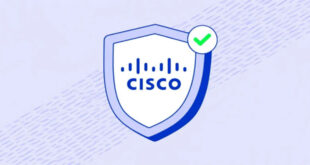SonicWall has revealed a vulnerability in its SonicOS SSLVPN Virtual Office interface that could let remote attackers crash firewall appliances. Identified as CVE-2025-32818, this high-severity vulnerability has a CVSS score of 7.5, posing significant risks for enterprises using SonicWall Gen7 devices for secure network access.
The official advisory states that a Null Pointer Dereference vulnerability in the SonicOS SSLVPN Virtual Office interface lets a remote, unauthenticated attacker crash the firewall, which could cause a Denial-of-Service (DoS) situation.
By infosecbulletin
/ Friday , June 27 2025
Cisco has issued updates to fix two critical security vulnerabilities in Identity Services Engine (ISE) and ISE Passive Identity Connector...
Read More
By F2
/ Thursday , June 26 2025
CISA warns about a serious vulnerability in Fortinet FortiOS that threatens network security. CISA included CVE-2019-6693 in its Known Exploited...
Read More
By F2
/ Thursday , June 26 2025
Rapid7 has revealed serious vulnerabilities in multifunction printers (MFPs) from Brother, FUJIFILM, Ricoh, and Toshiba Tec Corporation. These findings, covering...
Read More
By infosecbulletin
/ Wednesday , June 25 2025
Citrix has issued security updates for a critical vulnerability in NetScaler ADC that has been actively exploited. The vulnerability CVE-2025-6543...
Read More
By F2
/ Wednesday , June 25 2025
SonicWall warned on Monday that unknown attackers have trojanized its SSL-VPN NetExtender application, tricking users into downloading it from fake...
Read More
By F2
/ Wednesday , June 25 2025
A significant security vulnerability has been revealed in TeamViewer Remote Management for Windows, posing a risk of privilege escalation attacks....
Read More
By infosecbulletin
/ Wednesday , June 25 2025
Unidentified hackers are targeting exposed Microsoft Exchange servers to inject harmful code into login pages and steal credentials. Positive Technologies...
Read More
By F2
/ Tuesday , June 24 2025
The U.S. House of Representatives has banned congressional staff from using WhatsApp on government devices due to security concerns, as...
Read More
By F2
/ Tuesday , June 24 2025
Kaspersky found a new mobile malware dubbed SparkKitty in Google Play and Apple App Store apps, targeting Android and iOS....
Read More
By F2
/ Tuesday , June 24 2025
OWASP has released its AI Testing Guide, a framework to help organizations find and fix vulnerabilities specific to AI systems....
Read More
This flaw allows attackers to take the firewall offline by sending specific requests to the SSLVPN interface, without needing authentication.
The vulnerability affects a wide range of SonicWall’s Gen7 virtual and physical firewalls, including:
Gen7 NSv: NSv 270, NSv 470, NSv 870
Gen7 Firewalls: TZ270, TZ270W, TZ370, TZ370W, TZ470, TZ470W, TZ570, TZ570W, TZ570P, TZ670
NSa Series: NSa 2700, 3700, 4700, 5700, 6700
NSsp Series: 10700, 11700, 13700, 15700
TZ80 (firmware 8.0.0-8037 and earlier)
Affected versions range from 7.1.1-7040 to 7.1.3-7015 (for 7.1.x releases) and 8.0.0-8037 and earlier for the TZ80.
SonicWall has quickly resolved this issue in recent firmware updates. Users should upgrade to:
Version 7.2.0-7015 or higher for Gen7 Firewalls and NSv
Version 8.0.1-8017 or higher for TZ80 devices
Enterprises are advised to implement these updates right away to reduce the risk of a DoS attack.
GitLab Releases Security Update For Multiple Vulns
 InfoSecBulletin Cybersecurity for mankind
InfoSecBulletin Cybersecurity for mankind














